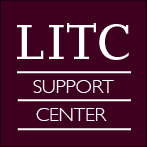Success

Low Income Taxpayer Clinics, or LITCs, are organizations that provide pro bono (free) representation to low income taxpayers who have tax disputes with federal, state, or local tax agencies. The disputes can involve audits, administrative appeals, collection, account adjustments, or litigation. LITCs also provide outreach and education for low income taxpayers and taxpayers who speak English as a Second Language (ESL) about taxpayer rights and responsibilities. LITCs began in the United States in the 1970s as part of clinical education programs in law, accounting, and business schools. In 1992 the first freestanding LITC was founded. LITCs expanded significantly in the late 1990s with the enactment Internal Revenue Code section 7526 under the IRS Restructuring and Reform Act of 1998, which created a federally funded matching grant program. In addition to the U.S., there are several LITCs in Australia, Ireland, and the United Kingdom.
Without LITCs, taxpayers who cannot afford representation in tax disputes with the tax agency are likely to get the wrong result, simply because they do not understand the tax law, or they do not understand what they need to provide the agency to support their case, or they simply give up because they are afraid or intimidated by the tax agency.
Low income and other vulnerable taxpayer populations may not know they have the general right to challenge the tax agency and be heard, or that they have specific protections under the law. LITCs ensure that low income taxpayers are afforded the same rights and protections — due process — as taxpayers who can pay for counsel.
By operating LITC Connect, an online “dating app” for volunteers and LITCs, we enable LITCs to request pro bono support, identifying the specific issue and expertise needed, and we then connect the LITC to a qualified and available attorney or other tax professional. Pro bono assistance includes not only direct representation but also the provision of technical advice and mentoring of LITC attorneys.
By developing and offering training in relevant tax issues to volunteers and LITCs, and developing resources for educating taxpayers about their rights and responsibilities, we ensure the protection of taxpayer rights.
By hosting weekly Litigation Strategy calls, we help LITCs identify issues impacting low income and other vulnerable populations and help coordinate litigation on those issues.
By submitting amicus briefs where the issue before the court has a negative impact on low income taxpayers, or by submitting congressional testimony or comments on proposed regulations or IRS notices or FAQs, or by preparing Reimagining Tax Administration Briefs assessing the effect of IRS procedures on low income populations and making recommendations to mitigate those effects, we capture the front-line experience of the LITCs and bring it to the national policy stage.
By submitting FOIA requests for unpublished data or internal documents pertaining to procedures and practices impacting low income taxpayers, we are creating a library of documents and data resulting in greater transparency as to how IRS procedures impact low income taxpayers.